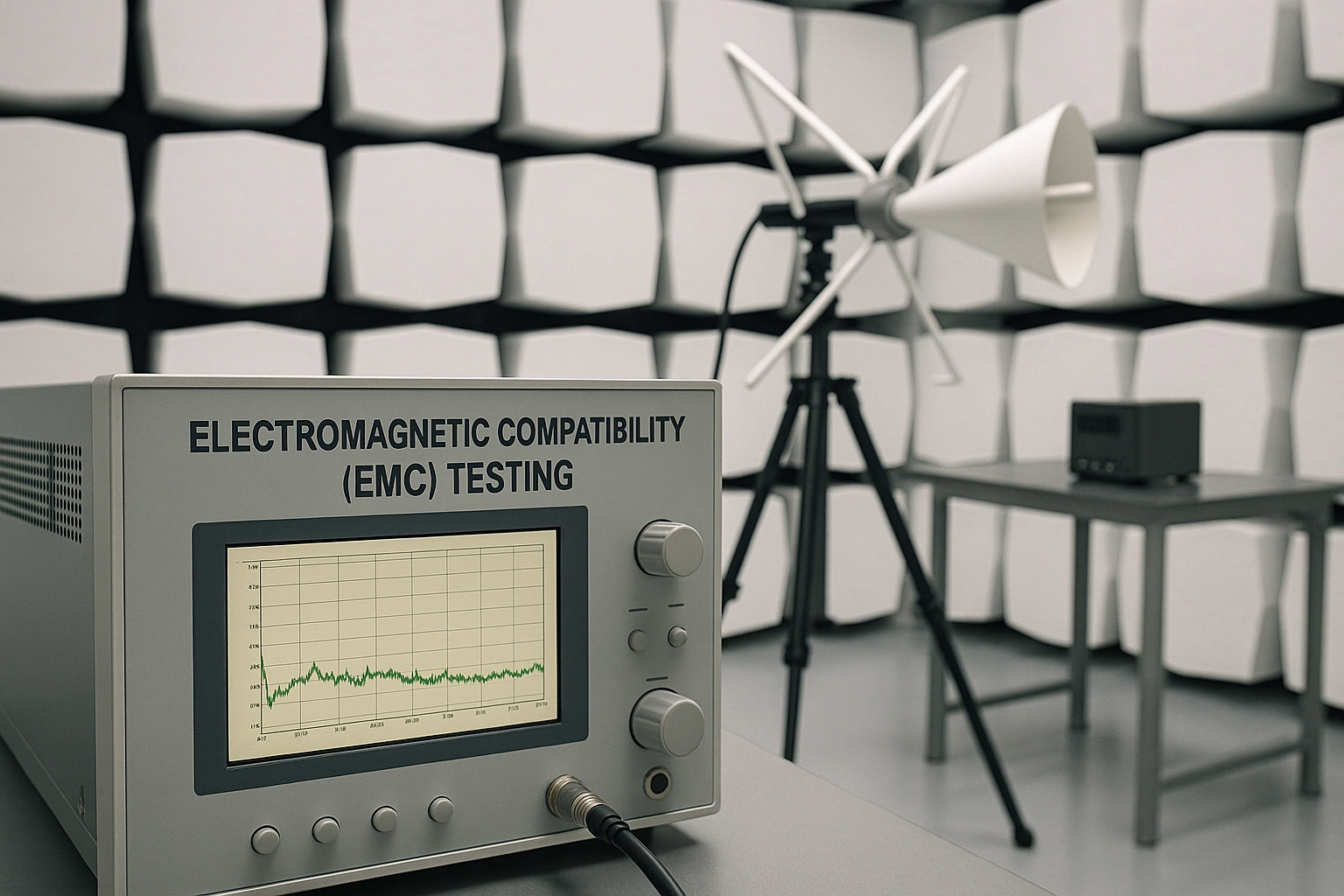EN 60601 EMC Test for Automotive Medical Devices
The EN 60601 series of international standards defines safety requirements for medical electrical equipment and related products. For automotive medical devices, the specific standard that addresses electromagnetic compatibility (EMC) is EN 60601-1-4:2018.
Electromagnetic Compatibility ensures that a device operates correctly in its intended environment without causing harmful interference to other equipment or systems. In the automotive context, this means ensuring that medical devices do not interfere with vehicle electronics and that they are robust against electromagnetic disturbances from the surrounding environment.
The EN 60601-1-4 standard provides detailed specifications for EMC testing of medical electrical equipment used in automobiles. This includes tests to evaluate immunity (the ability of a device to function correctly when subjected to electromagnetic interference) and emissions (the level of noise that the device can generate).
Testing under EN 60601-1-4 is crucial for ensuring compliance with global regulatory requirements, including those in Europe, where automotive medical devices are sold. Non-compliance can result in product recalls, legal issues, and reputational damage.
The process involves several steps: initial risk assessment to identify potential hazards, design of the test setup, execution of tests under controlled conditions, and finally, analysis of results to ensure compliance with the standard. This service is tailored for clients involved in the development, manufacturing, and quality assurance of automotive medical devices.
Our laboratory adheres strictly to international standards such as ISO/IEC 17025:2017, ensuring that our testing services are reliable and credible. Our experienced team utilizes state-of-the-art equipment and follows rigorous protocols to provide accurate and precise test results.
| Test Type | Purpose | Key Considerations |
|---|---|---|
| Electrostatic Discharge (ESD) | Evaluate the device's resistance to static electricity. | Tested at ±4kV and ±8kV depending on the device category. |
| Radio Frequency Field Immunity | Determine the device's ability to function correctly in a radio frequency field. | Tested across multiple frequencies, including 30MHz to 1GHz and 8GHz. |
| Broadband Noise Immunity | Evaluate the device's performance under broadband noise conditions. | Tested using a wide range of frequencies from DC to 30MHz. |
The testing process is comprehensive and covers all aspects of EMC, ensuring that automotive medical devices meet the highest safety and performance standards. Our team works closely with clients throughout the process to ensure that every step aligns with their specific needs and goals.
Scope and Methodology
- Comprehensive testing of medical devices used in automobiles to ensure EMC compliance.
- Inclusion of both immunity tests (to protect the device from external interference) and emission tests (to prevent the device from interfering with other systems).
- Use of state-of-the-art equipment for precise measurement and analysis.
- Conformance to international standards such as EN 60601-1-4:2018.
| Step | Description |
|---|---|
| Initial Assessment | Evaluation of the device's expected electromagnetic environment. |
| Test Setup Design | Configuration of test equipment and setup according to the standard. |
| Data Collection | Recording of all relevant data during the testing process. |
| Analysis and Reporting | Interpretation of test results and preparation of a detailed report. |
Industry Applications
- Automotive manufacturers looking to ensure the safety and reliability of medical devices used in their vehicles.
- R&D teams seeking to validate new designs for compliance with international standards.
- Quality assurance departments responsible for maintaining product quality throughout the lifecycle.
- Procurement personnel ensuring that suppliers meet all necessary regulatory requirements.
Environmental and Sustainability Contributions
By ensuring EMC compliance, our service helps reduce the risk of product failures in critical environments. This contributes to enhanced patient safety and improved vehicle performance, which are key goals for modern automotive medical devices.
Compliance with standards like EN 60601-1-4 also supports environmental sustainability by minimizing waste from non-compliant products that may be recalled or discarded due to safety concerns. Our service thus plays a role in promoting both product quality and environmental responsibility.





